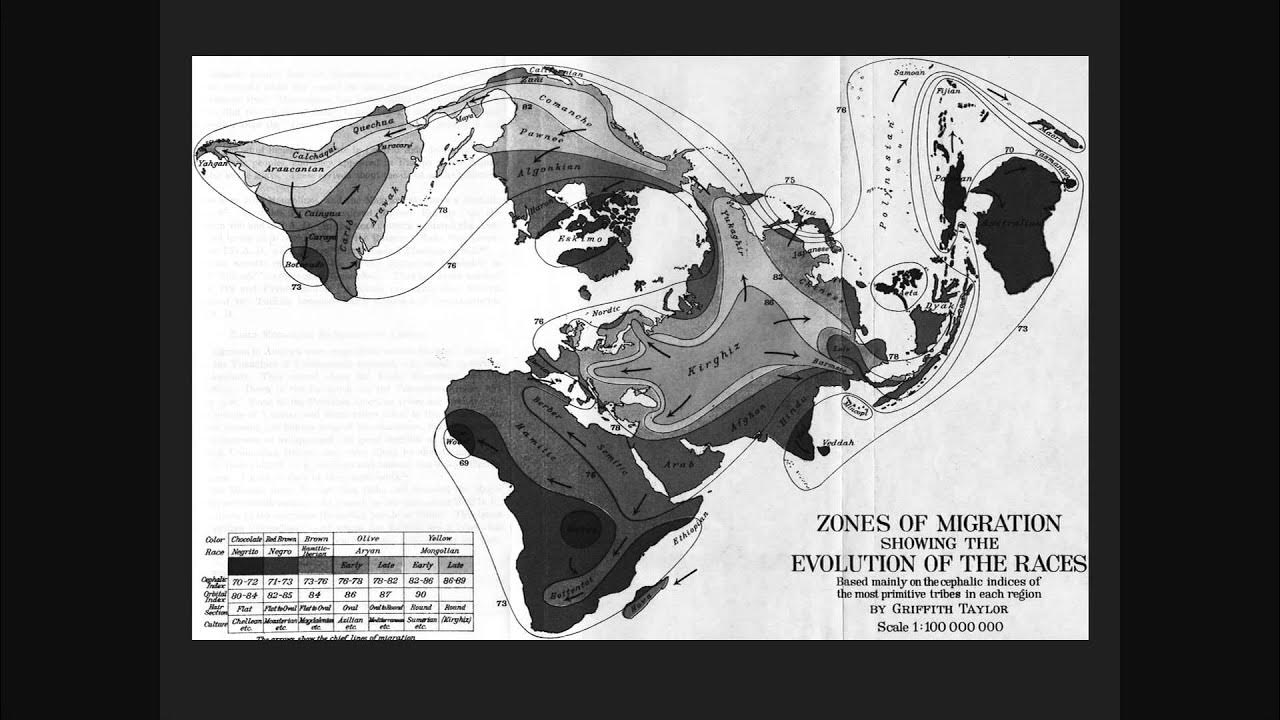What is Postcolonial Theory?
Summary
TLDRPost-colonial theory is a critical approach in literary studies that examines the lasting impact of European colonialism on a global scale. Originating from Commonwealth literature and third world studies, it challenges the notion of enriching English literature and is heavily influenced by Edward Said's 'Orientalism.' The theory addresses the cultural and literary expressions of former colonies and considers the United States' literature as part of this discourse due to its efforts to establish a non-English dominated canon. It employs postmodern theoretical discourses such as deconstruction and psychoanalysis to understand the world in relation to imperialism and colonialism.
Takeaways
- 🌟 Post-colonial theory is a critical approach in literary studies that examines the global impact of European colonialism.
- 📚 It evolved from earlier theories like Commonwealth literature and third world studies.
- 🏛️ Edward Said's 'Orientalism' is considered a foundational text of post-colonial theory.
- 🌍 The theory explores how colonialism led to attempts to understand and control colonial subjects, creating stereotypes.
- 🔄 Post-colonial theory takes various forms but maintains that the world is shaped by the history of imperialism and colonialism.
- 🗺️ The term 'post-colonial' can refer to the period after colonial independence or the broader effects of colonization.
- 🌐 It encompasses cultures affected by imperialism from colonization to the present.
- 📚 Post-colonial theory studies literature from colonies and regions influenced by colonialism, including the United States.
- 💭 The methodology often involves postmodern discourse, deconstruction, psychoanalysis, and Foucauldian discourse analysis.
- 👥 Key figures in post-colonial theory include Edward Said, Gayatri Spivak, and Homi Bhabha.
Q & A
What is post-colonial theory?
-Post-colonial theory is a theoretical approach in literary studies that critically analyzes the global effects of European colonialism.
How did post-colonial theory evolve?
-Post-colonial theory developed from earlier theories of Commonwealth literature and third world studies.
What is the significance of Edward Said's work 'Orientalism' in post-colonial theory?
-Edward Said's 'Orientalism' is considered one of the founding texts of post-colonial theory, focusing on how colonial conquests resulted in an attempt to know and administer colonial subjects.
What are the pervasive images generated by colonial literature according to the transcript?
-The literature of Empire often portrays effeminate Indians, savage Africans, and inscrutably sinister Orientals.
What does the term 'post-colonial' mean in different contexts?
-In terms of period, it refers to the time following the independence of former colonies. In terms of origin, it relates to colonization itself. Geographically, it refers to a vast spatial unity affected by the imperial process.
According to Ashcroft, Griffiths, and Tiffin, why should the literature of the United States be considered post-colonial?
-19th century American literature was marked by an attempt to construct a canon that was not dominated by the English classics, which is why it is considered post-colonial.
What cultures and literatures does post-colonial theory aim to study?
-Post-colonial theory aims to study the cultures and literatures of colonies such as India, Africa, Asia, Canada, Australia, and South America.
What is the methodological approach of post-colonial theory?
-Post-colonial theory tends to be dominated by theoretical discourse associated with post-modernity, including deconstruction, Lacanian psychoanalysis, and discourse analysis derived from Foucault.
Who are some of the key figures in post-colonial theory mentioned in the transcript?
-Key figures in post-colonial theory mentioned include Edward Said, Homi Bhabha, and Gayatri Spivak.
What is the fundamental claim of all post-colonial theories?
-The fundamental claim is that the world we inhabit is impossible to understand except in relationship to the history of imperialism and colonialism.
Why can the term 'post-colonial' be misleading?
-The term 'post-colonial' can be misleading because it suggests a period following colonialism, but it also encompasses the entire history of colonization and its ongoing effects.
Outlines

Этот раздел доступен только подписчикам платных тарифов. Пожалуйста, перейдите на платный тариф для доступа.
Перейти на платный тарифMindmap

Этот раздел доступен только подписчикам платных тарифов. Пожалуйста, перейдите на платный тариф для доступа.
Перейти на платный тарифKeywords

Этот раздел доступен только подписчикам платных тарифов. Пожалуйста, перейдите на платный тариф для доступа.
Перейти на платный тарифHighlights

Этот раздел доступен только подписчикам платных тарифов. Пожалуйста, перейдите на платный тариф для доступа.
Перейти на платный тарифTranscripts

Этот раздел доступен только подписчикам платных тарифов. Пожалуйста, перейдите на платный тариф для доступа.
Перейти на платный тарифПосмотреть больше похожих видео

Edward Said and Orientalism: A Simple Explanation

What is Postcolonialism? A Short Introduction to Postcolonial Theory

🌍⚓ O Processo Histórico na Formação da Economia Globalizada

Colonialism and Post-Colonial Literary Criticism

A Theory You've Never Heard Of | Michael Robinson | TEDxUniversityofHartford

Postcolonial Literary Theory
5.0 / 5 (0 votes)
